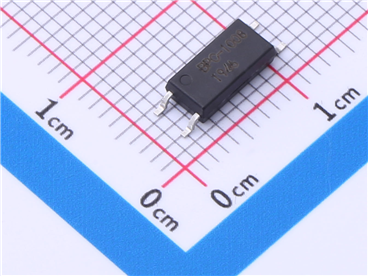Service hotline
+86 0755-83044319
release time:2024-01-26Author source:SlkorBrowse:6790

Ms. Li Tao, former senior HR executive at Huawei
The training session conducted by Ms. Li Tao revolved around the story of Chairman Mao's "Sanwan Reorganization" in 1927 and discussed different organizational characteristics, emphasizing the strategic importance of organizational development. The discussion highlighted the principles of managing systems, processes, and teams for successful organizational establishment. It was emphasized that Chairman Mao's successful acquisition of power was attributed to his visionary approach to organizational development, which earned the support of the people and led to overall success. Huawei's remarkable success in establishing a robust organizational system was cited as an exemplary model for Kinghelm (www.kinghelm.net) and SLKOR (www.slkoric.com) to emulate. The leaders of Huawei, such as Ren Zhengfei and Yu Chengdong, serve as role models for Mr. Song Shiqiang, General Manager of Kinghelm, who expressed a strong desire to learn from them.
Mr. Song Shiqiang believes that organizational development is fundamental for implementing corporate strategies and crucial for business operations and growth. An efficient organizational structure can enhance decision-making efficiency, productivity, and innovation capabilities, thereby leading to competitive advantages and business success. Huawei's strong organizational development has revitalized the company, resulting in significant competitive advantages and the construction of a powerful Huawei empire. However, Mr. Song Shiqiang also acknowledged that different industries and scales of companies may require different approaches to organizational development. Therefore, he emphasized the need for Kinghelm/SLKOR to formulate their own tailored organizational development plans based on their specific circumstances.

Mr. Song Shiqiang expressed his views on organization building
Ms. Li Tao continued to share that enterprise organizational development should include multiple aspects, such as optimizing organizational structure, improving management system, cultivating and motivating employees, and enhancing production efficiency. These aspects are interrelated and interdependent, forming a highly effective enterprise organizational development.
1. Optimizing organizational structure is one of the crucial aspects of enterprise organizational development. Through a reasonable organizational structure, enterprises can coordinate different departments, avoid decision-making errors, and prevent resource waste. At the same time, a reasonable organizational structure can also make enterprises more flexible and adaptable to market changes.
2. Improving management system is another important aspect of enterprise organizational development. A sound management system can help enterprises operate more efficiently and improve quality. Additionally, a good management system can also enhance employee work enthusiasm and satisfaction, thereby promoting stable enterprise development.
3. Cultivating and motivating employees are another important aspect of enterprise organizational development. Through training and incentive plans, enterprises can improve employee quality and skills, promote personal development, and achieve long-term enterprise development.
4. Enhancing production efficiency is also one of the critical aspects of enterprise organizational development. By optimizing production processes, adopting advanced production technologies and management methods, enterprises can improve production efficiency, reduce costs, and enhance competitiveness.
In conclusion, Ms. Li Tao summarized that enterprise organizational development is the foundation for implementing enterprise strategies and is crucial for enterprise operation and development. A highly efficient enterprise organizational development can help enterprises better respond to market changes and competitive challenges, thus achieving commercial success. In response to the excellent organizational development training course brought by Ms. Li Tao, middle-level management personnel from Kinghelm (www.kinghelm.net) and SLKOR(www.slkoric.com) have written their training experiences, which have improved their thinking levels and broadened their horizons, benefiting them significantly!

All employees participated in the organizational development training
Here are some selected training reflections from colleagues at Kinghelm/SLKOR:
Mr. Song Shiqiang, General Manager of Kinghelm/SLKOR:
At the current stage of company development, we must pay attention to the balance between team, organization, system, process, and business. The knowledge reserves, thinking process, and procedures of our organization and system are crucial. They ensure that our company can fight and win battles, and sustainably develop and win battles. All of us should strictly focus on these points in our work and learning. Only then can our organization provide strong support and promote business growth! Let's learn comprehensively from the excellent Huawei.
Cheng Yujie, Deputy General Manager of Kinghelm:
1. Militarized systems and result-oriented approaches are not mutually exclusive. Regardless of the circumstances, it is important to manage through systems and regulations.
2. All organizations are established and managed through systems and regulations.
3. When problems arise, I prioritize problem-solving first and then work on optimizing the situation, ensuring that problems do not reoccur through system and regulatory improvements.
4. A comprehensive understanding of the strengths, weaknesses, and individual capabilities of each team member is advantageous for managing the team and maximizing its value.
He Junju, Deputy General Manager of SLKOR:
1. Establish and improve the company's organizational structure, develop processes based on the company's actual situation, and enhance departmental efficiency through optimizing the organizational structure and processes.
2. Pay attention to details and focus on results through processes and collaboration with others.
3. For sustainable development, the company must rely on processes and systems rather than solely relying on individuals' subjective consciousness. Problems need to be solved through processes.
4. Foster a corporate culture that aligns with the company's current development, nurture employees' correct values, instill self-drive in employees, improve work efficiency, and enhance team cohesion. Strengthen employees' execution abilities, work together towards common goals, and strive together.
5. Only through continuous learning and reflection can we effectively identify and solve problems, ultimately improving ourselves and becoming better.
Zhou Zhaoquan, Business Director of Kinghelm:
Today, I have gained a new perspective. Huawei, as the only high-tech company in China that can compete with Apple, Qualcomm, and Google, must have scientific, advanced, diverse, and reasonable management and business principles. Today, we discussed the rational configuration of organizational structure and process management of Huawei in the past decade or so. The scope of today's discussion was broad and deep. It made me feel like I have learned as much as studying for ten years. After listening to so much, the most important consideration for me is how to improve efficiency within the existing processes and organizational structure of our company. After listening, what I need to do is to design regulations and manage the team with rules and regulations. There is also a need for a shift in work ideology and mindset, transitioning from being a professional salesperson to a manager. This process has had its share of confusion and mistakes, but after listening today, I realize that my positioning and thinking were wrong. Without rules, there can be no order. The development of the company cannot be separated from efficient processes and reasonable organizational structure. I still need to learn more and listen to more case studies.
Deng Haifeng, Business Director of Kinghelm:
1. It is necessary to establish sound processes that are suitable for the company's development.
2. Build a team with hierarchy, discipline, and execution capability.
3. Establish appropriate rules and regulations for the company, which should neither change arbitrarily nor remain unchanged. Adjustments should be made at the right time. The system should better promote the company's development rather than impede workflow.
4. Strict implementation and fairness.
Chen Suwei, Business Director of Kinghelm:
1. There is a close relationship between a good company organization, process system, and management. It strengthens communication efficiency and execution ability among the top, middle, and bottom levels of the company.
2. The organizational system needs to be adjusted continuously along with the company's development, allowing employees to transition from workers to stakeholders and improving work efficiency.
Qiu Huilin, Business Director of SLKOR:
A good organization not only needs a clear direction and unified values but also requires a strong leadership and management mechanism, as well as a culture that encourages collaboration and innovation. A good organization should be a learning and evolving institution. It should be able to adjust strategies according to market changes, absorb new knowledge, enhance the capabilities of team members, and undergo structural reorganization or transformation when necessary to maintain its competitive advantage. A good organization can achieve effective allocation and utilization of resources among its members, thereby improving overall efficiency and synergy. Through resource sharing, team members can gain more experience and skills while reducing unnecessary work and internal friction. Each member of the organization should have a shared set of values, which are their understanding and perspectives on things, as well as the behavioral guidelines they are willing to make efforts for. A good organization should be in line with human nature and able to harness the strengths and weaknesses of individuals.
Zhang Junjun, Business Director of SLKOR:
1. Management styles should vary based on individuals and companies. The same person and the same company may require different management approaches at different stages.
2. Using systems and rules to manage and handle issues within the team. Good systems help improve team efficiency and reduce internal conflicts.
3. Allow those who can hear the sound of cannons to call for artillery support. Managers need to understand the market and customers in order to better manage the team.
Sun Gaofei, Business Director of SLKOR:
1. Through several case stories, it can be illustrated that systems manage people, processes manage tasks, and teamwork establishes dominance. The organizational system sets the foundation for the company's development.
2. In the company's development, the organizational system enables everyone to have a clear understanding of the company's future direction and provides hope for their career prospects. It helps individuals clarify what they need to do, what they can do, and what they will do within the company.
3. Let those who can hear the sound of cannons call for artillery support. Delegating power to lower-level employees allows them to better understand the frontline business situation and react quickly to ensure the achievement of goals. This fosters a sense of responsibility and provides the opportunity for higher income.
Song Yuanming, Foreign Trade Supervisor of Kinghelm:
The organization and business are interdependent. A strong organization can provide strong support for business, promoting its continuous and stable growth. Through a reasonable organizational structure and internal management mechanism, a company can better coordinate the work of various departments, optimize resource allocation, improve work efficiency, meet market demands, and enhance competitiveness. At the same time, the successful development of the business can also benefit the organization by providing more resources and motivation, further driving its growth.
Lai Xiaoxia, Foreign Trade Supervisor of SLKOR:
There is a close relationship between an effective company organization, process system, and management. Firstly, a well-designed organizational structure ensures the collaboration of different departments, improving overall operational efficiency. Secondly, clear process guidelines help standardize employee behavior and reduce chaos in the workplace. Lastly, effective communication and coordination facilitate the flow of information between departments, solving work-related problems and ensuring smooth company operations. Therefore, an excellent company must focus on building a sound organizational structure, standardized processes, management systems, personnel training, and communication coordination.
Huang Dejun, Promotion Department Director of Kinghelm/SLKOR:
1. Management systems need to be adjusted according to local conditions, timing, and people. Different stages and departments have different attributes, so the management system should also be adjusted accordingly.
2. Business capability does not represent management capability. Managers need to balance their time between business and organizational management. Focusing solely on one's own business will hinder effective organizational management.
3. Flat organization structure enables quick decision-making and simplifies processes.
4. Matrix management allows for detailed management and the development of lower-level personnel, enhancing work efficiency.
5. Empowering lower-level employees allows them to better understand the needs and make adjustments to their work.
Guo Yumei, Overseas Promotion Director of SLKOR:
1. There is no universal best management model. Different stages of development require different models to adapt.
2. Excellent managers design rules, establish systems, and understand human nature to coordinate efficient and orderly organizational operations.
3. Excellent organizational design and collaboration can turn impossible tasks into achievable ones.
4. Organizational capability and business capability are completely different. The transition from employee to manager is challenging.
5. Organization and processes complement each other.
6. The organization should be as dynamic as a flowing stream.
7. Study "Good to Great" to improve professional competence.
Xiang Jinbao, Kinghelm Supply Chain Manager:
The company's development relies on the support of organizational and process systems. A scientific and effective process system enables the company to develop steadily, guide smooth transformations in different stages, and optimize internal processes and collaboration in the supply chain.
Xiang Qingqing, SLKOR Supply Chain Manager:
1. A sound organizational system is crucial for the long-term development of a company. It serves as the foundation for conducting business and ensures smooth organizational management processes, improving company efficiency and employee productivity.
2. A good manager needs clear goals and direction. They require leadership, decision-making, and communication skills to successfully achieve organizational objectives. Additionally, managers need to continuously learn and enhance their abilities to adapt to different stages of company development.
Li Jianhui, Kinghelm Warehouse Department Manager:
1. Top-level design with middle-level implementation: Even the best design is futile without thorough execution. Middle-level managers play a crucial role in implementing company policies.
2. Different stages of company development require different talent demands. Talent management and utilization are important.
3. Insight into the market and product sensitivity requires foresight.
4. Strategic alliances with excellent suppliers are important during growth.
Wu Junrong, SLKOR Warehouse Department Manager:
In business organization and process reengineering, "improved efficiency" is both the "cause" and the "effect." Good practices will strengthen the team's combat effectiveness. Continuous process optimization and business organization transformation are essential for the company's growth and strength. In the future, I will continue to focus on organizational structure, process optimization, and new skills, while emphasizing data-driven decision-making. Ultimately, I will ensure that the team remains in optimal condition, constantly adapting to rapidly changing market environments and business needs, and creating more value for the company.
Xie Lin, Customer Service Manager of Kinghelm/SLKOR:
1. Understanding the importance and role of organizational systems in a company. Develop and implement organizational management strategies such as personnel allocation, job responsibilities, and performance evaluation. Establish effective communication channels and incentive mechanisms to promote teamwork and employee development.
2. Clarify strategic goals to ensure understanding and alignment throughout the organization. Senior leaders should effectively communicate strategic goals and ensure that employees at all levels understand and align with them.
3. Respect and trust team members, mobilize their enthusiasm and creativity, and promote a culture of collaboration and knowledge sharing. Encourage employees to actively participate in team projects and cross-departmental cooperation, fostering synergy and experience exchange between different levels.
Chen Haifeng, Kinghelm/SLKOR HR Manager:
A good company must adhere to the principle of operating in accordance with rules and implement a management approach that combines strictness with innovation. Organizational change and development should be flexibly adjusted according to the company's scale, and managers should take primary responsibility for discovering and rectifying issues in a timely manner. The implementation of process systems is crucial for department managers, as they are not only responsible for execution but also for driving the adoption of process systems. Only in this way can a company maintain sustained and stable development while adhering to rules.
Liang Xian, Kinghelm/SLKOR Administration Manager:
1. The construction of an organizational system is more important than business development.
2. Once the organizational system is established, strict implementation of regulations and rules is essential. Regulations and rules should be easy to understand and convenient to execute.
3. Organizations need continuous vitality to stimulate the enthusiasm of every individual and achieve continuous growth.

Kinghelm/SLKOR weekly staff meeting
Kinghelm/SLKOR is an enterprise that actively explores suitable organizational development methods. SLKOR actively integrates into the industry ecosystem and aims to build the company into a platform for win-win cooperation. On its official website, it has created columns for technical exchanges, expert columns, information retrieval, news broadcasting, and industry applications, aiming to become a space for information integration and idea collision, promoting academic and ideological exchanges. This open attitude and spirit of cooperation not only contribute to improving the company's innovation capabilities but also make contributions to the healthy development of the industry ecosystem. Kinghelm, on the other hand, has also made many efforts in organizational development. It has implemented digital and process-oriented management and utilized information technology to establish an information sharing platform among various departments, ensuring the synchronization of information and products between the R&D department, supply chain, Luzhai factory, Longhua transit warehouse, sales department, and customers. This digital management approach not only enhances communication efficiency and decision-making speed but also reduces information transmission errors and delays, thus improving the overall operational efficiency of the entire enterprise.

SLKOR products are selling well on Huaqiang Electronic Network









Site Map | 萨科微 | 金航标 | Slkor | Kinghelm
RU | FR | DE | IT | ES | PT | JA | KO | AR | TR | TH | MS | VI | MG | FA | ZH-TW | HR | BG | SD| GD | SN | SM | PS | LB | KY | KU | HAW | CO | AM | UZ | TG | SU | ST | ML | KK | NY | ZU | YO | TE | TA | SO| PA| NE | MN | MI | LA | LO | KM | KN
| JW | IG | HMN | HA | EO | CEB | BS | BN | UR | HT | KA | EU | AZ | HY | YI |MK | IS | BE | CY | GA | SW | SV | AF | FA | TR | TH | MT | HU | GL | ET | NL | DA | CS | FI | EL | HI | NO | PL | RO | CA | TL | IW | LV | ID | LT | SR | SQ | SL | UK
Copyright ©2015-2025 Shenzhen Slkor Micro Semicon Co., Ltd